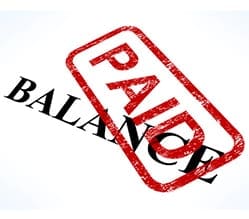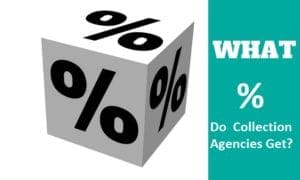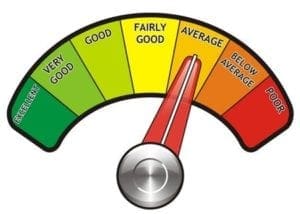Collection Agency Fees Explained
When clients aren’t paying invoices it may be time to hire a collection agency. But first, here’s what you need to know about collection agency fees.
For some people, running from debt is a full-time job. They make conscious efforts not to pay out the money they owe, no doubt patting themselves on the back for managing to constantly outsmart debt collectors.
As a result, some businesses are forced to hire collection agencies if they ever want to see the money they’re owed. Before they hire these agencies, though, they must do their research on collection agency fees. Doing so will allow them to bring their debtors to justice without being gouged by collection agencies.
That said, sit back, relax, and prepare to find out how to navigate those pesky collection agency fees.
How Do Collection Agencies Make Money?
Before learning about the fees agencies charged, people have to understand that collection agencies are businesses first and foremost. This means that they’re motivated to make a profit.
 So how do they make this profit?
So how do they make this profit?
There are two ways in which they go about profiting off of debt, the first of which is via fees. They charge clients fees to track down debtors and collect money that is owed.
Sometimes these fees are flat fees, but other times these fees come in the form of commission. If they don’t charge a commission, they instead charge a percentage which is based on a number of factors.
The second way in which collection agencies make money is through buying debt. This types of agencies buy debt at low costs and make their money by collecting and keeping the debt.
Even if some debts can’t technically be collected due to their age, these agencies can make money off of them. They buy them for dirt cheap prices and still manage to make a fair amount of money this way.
Agencies have even been known to sue debtors to collect money, which is a just a testament to their overall determination. Getting money out of debtors is what they do, and they do it well.
What Percentage Do These Debt Collection Agencies Charge?


Now that we’ve gone over how agencies make money, we’ll go over the percentages that these agencies charge. We’ll begin with the flat fees we mentioned above.
Flat fees are perhaps the easiest collection agency fees to keep track of. This is because they’re not actually percentages; they’re just calculated using the number of accounts that a client places. Again, they’re not percentages, but they may be of some interest to readers.
So what are some actual examples of percentages that agencies charge?
Well, that depends. Collection agencies work with debt, and tons of business risks accompany that work. This means that they charge higher percentages for accounts which are riskier than standard accounts.
For example, some agencies might charge about 20 to 25 percent commission for standard accounts. Standard accounts are accounts which collection agencies could expect to easily resolve. The debt associated with the accounts will be relatively new, and the collectors will have reliable information about the debtors.
Some agencies might charge double that amount for iffier accounts. These accounts are typically older and, for one reason or another, the collectors won’t have a lot of info about the debtors. As a result, they’ll have to work doubly or triply hard to track down the debtors.
If someone is a regular customer at a collections agency, that person could end up paying a lower percentage than the ones we’ve listed here. This is primarily because agencies sometimes have special deals for clients who regularly use their services.
Note, however, that “regularly” means that a client routinely hires an agency to take care of a large number of accounts. The idea behind this is likely that the agency can make more money off of frequent customers if they charge them sustainable fees.
What Is The Average Collection Rate of Debt Recovery Companies?


Generally speaking, the numbers for the average rate of collection aren’t entirely consistent. Many sources, however, report that about only 20 percent of debt is actually collected. This really depends on the age the debt and authenticity.
If those numbers are broken down, it becomes evident that certain industries are worse off than others. The medical industry, for instance, averages a 15% to 16% collection rate, which means that hospitals and medical institutions have less success collecting debt by using agencies.
Given these rates, the overarching question here is whether or not using collection agency is worth it. The numbers seem a bit low, and perhaps that makes some people doubt the usefulness of collection agencies.
Think about things this way, though. If a collection agency charges commission on the debts it collects, there is no real loss to the clients themselves. Sure, the commission might seem steep, but without collection agencies, some businesses would never see any of the money they were owed.
Many businesses can attest to this fact. They can also attest to the fact that working with a collections agency encourages debtors to reach out to them. Debtors really don’t want to get into any trouble with collections agencies, so some of them are more likely to comply with businesses if they get a couple of calls from agencies.
If, on the other hand, an agency charges a flat fee, it’s harder to ascertain whether or not working with an agency is worth it. If the agency’s fee is higher than the debt they collect on a business’s behalf, perhaps a deal of that nature is not worth it in the end.
Navigating Collection Agency Fees
Partnering with a collection agency can be worth a business’s time and money, but a business has to be able to see through collection agency fees. Whether or not they see any returns depends entirely on agency’s business structure.
Businesses shouldn’t, however, let sifting through those fees deter them. They stand to collect at least a bit of the money they’re owed, and that’s worth something.
Once businesses have gotten past this hurdle, they can go back to focusing on growing their businesses this year.
People who read this also liked:
